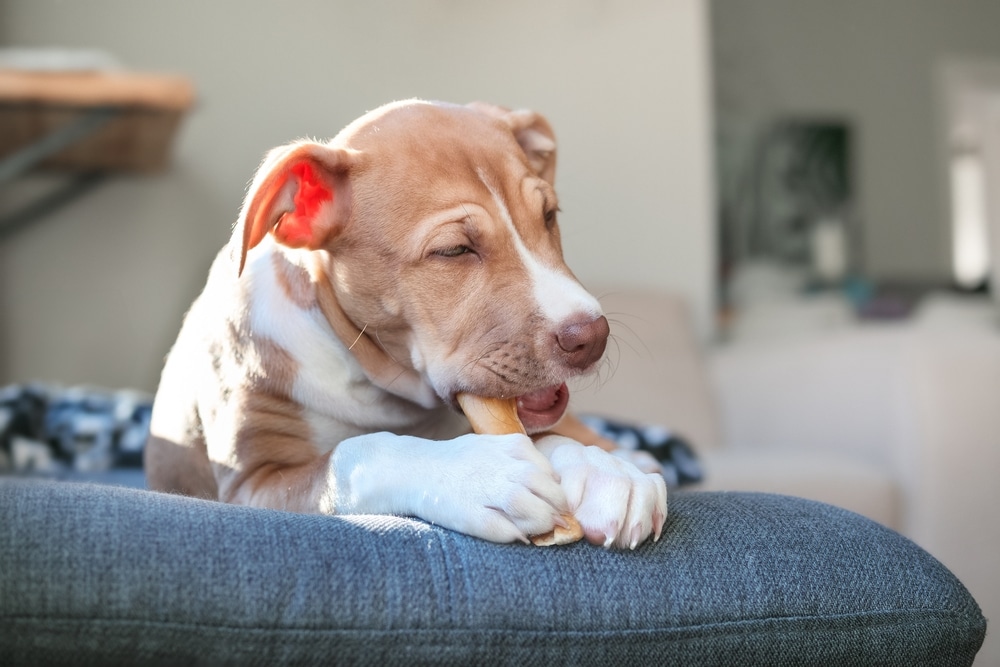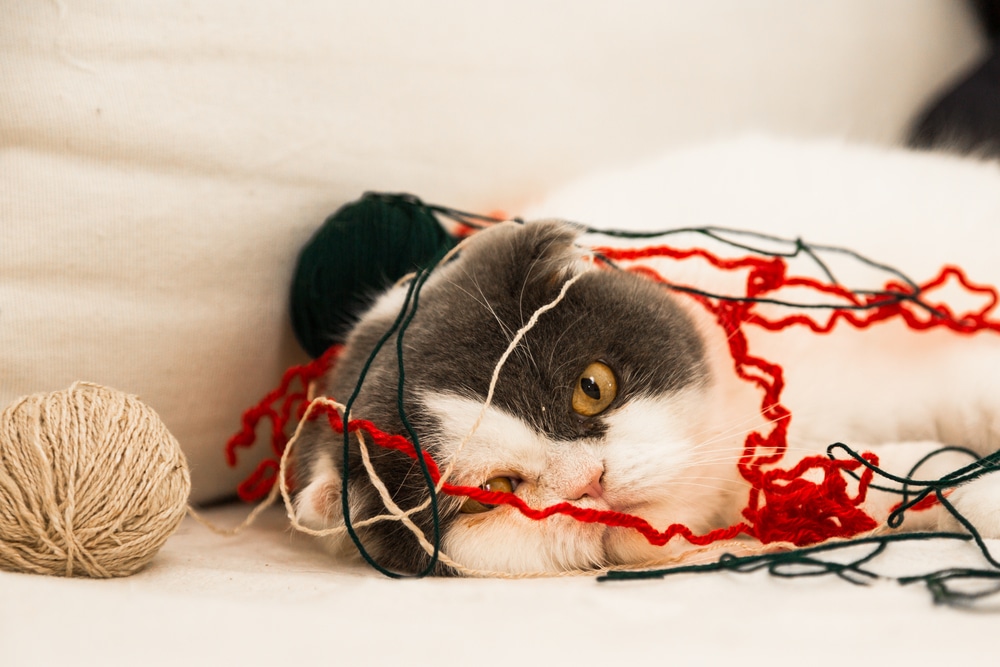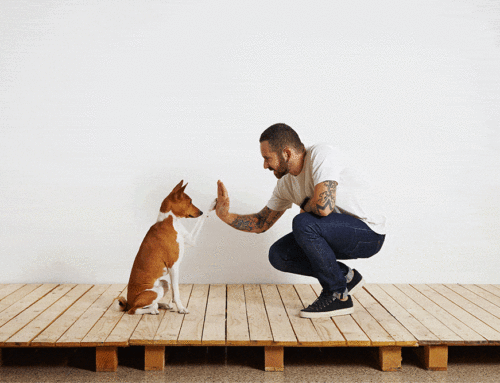What to Do When Curiosity Turns Dangerous
Dogs and cats explore the world with their mouths, and sometimes that curiosity leads to trouble. From socks and corn cobs to hair ties and toys, swallowed objects can quickly cause abdominal pain, vomiting, or lethargy. Owners often wonder, “Will this pass, or does my pet need surgery?” At MountainView Veterinary Hospital in Denville, NJ, we provide compassionate care and use advanced tools to help families get clear answers and the right treatment, day or night.
Understanding the Risks
Why Pets Swallow Foreign Objects
Your pet’s mouth is their primary tool for exploring. Dogs and cats pick up, chew, and sometimes swallow objects to learn about them. Puppies and kittens, especially during teething, are more prone to swallowing inappropriate items. Adult pets may do the same due to boredom, anxiety, or attraction to certain smells or textures.
Common culprits include socks, underwear, children’s toys, corn cobs, bones, hair ties, rubber balls, and rocks. Each presents different challenges for the digestive tract. Some cause immediate blockages, while others become problematic as they move through the intestines.
Potential Dangers of Swallowed Objects
The biggest concern is gastrointestinal obstruction, most often in the stomach or small intestine. Severity depends on size, shape, and material.
- Sharp objects, such as bones and metal, can puncture the intestinal wall, causing peritonitis, a life-threatening infection.
- Linear items, like string, yarn, and clothing fibers, can act like a drawstring, bunching the intestines and cutting off blood supply.
- Expanding items, such as corn cobs, absorb moisture and swell, making natural passage unlikely.
According to Cornell University, gastrointestinal foreign body obstruction in dogs requires immediate medical attention to prevent serious complications.
Signs include persistent vomiting (especially if water won’t stay down), lethargy, loss of appetite, abdominal pain, and inability to defecate. Early signs may be subtle, such as reluctance to eat favorite treats or decreased activity.
When to Seek Immediate Help
If you see your pet swallow something, contact your veterinarian right away, even if they seem fine. Symptoms can be delayed, and early intervention often prevents more invasive procedures.
The American Animal Hospital Association outlines recognizing pet emergencies. Vomiting with inability to keep water down, abdominal distension, or signs of pain warrant immediate attention.
At MountainView Veterinary Hospital, our emergency triage services operate around the clock to assess your pet’s condition and determine the appropriate level of care. Our team quickly evaluates whether surgery is needed or if less invasive approaches are possible.
The Surgical Solution
Initial Assessment and Diagnosis
When you arrive at MountainView for suspected foreign body ingestion, our team performs a thorough physical exam. This includes palpating the abdomen, checking hydration, and assessing overall condition.
Our diagnostic services include digital radiography and ultrasound to locate foreign objects and assess their effects. X-rays reveal radiopaque items like bones, metals, and stones, while ultrasound identifies soft tissue changes and intestinal wall thickness. Some cases require contrast studies to outline the digestive tract.
Blood work evaluates hydration, kidney function, and overall health before anesthesia. These steps help determine whether surgery is necessary or if alternatives are appropriate.
The Surgery Process
Foreign body removal surgery (enterotomy or gastrotomy) requires general anesthesia and precise technique. Our surgical team accesses the affected area, removes the object, and inspects tissues for damage.
Duration varies by location and complexity. Simple gastric removals may be brief, while complex intestinal obstructions can take longer, especially if multiple incisions are needed.
Postoperative care focuses on pain control, infection prevention, and supportive recovery. Most patients stay 1–3 days for monitoring and IV fluids. At home, recovery typically involves restricted activity, special diets, and close observation. Resources like crate rest guidelines can help you manage recovery.
Alternative Solutions
Not every foreign body requires surgery. Small, smooth objects may pass with supportive care and monitoring. Endoscopy can sometimes retrieve stomach objects with specialized tools, avoiding abdominal surgery.
A professional veterinary assessment is essential. “Wait and see” with dangerous objects can lead to perforation, peritonitis, or complete obstruction, escalating to emergency surgery with higher complication risks.
Preventing Future Incidents
Pet-Proofing Your Home
Prevention is best. View your home from your pet’s perspective and secure tempting items. Store shoes, socks, and clothing in closed containers. Keep children’s toys out of reach.
AAHA provides helpful pet-proofing guidelines covering common hazards. Be vigilant in kitchens where food scraps, corn cobs, and utensils may be accessible.
Inspect toys regularly and replace damaged ones. Choose appropriately sized toys that can’t be swallowed whole, and supervise play with new items until you’re confident they’re safe.
Redirecting Pet Behavior
Mental stimulation and appropriate outlets reduce interest in inappropriate objects. Try brain games for dogs to satisfy the need for engagement.
For persistent scavengers, basket muzzle training can add safety during walks and outdoor time. Properly fitted basket muzzles allow panting and drinking while preventing ingestion of dangerous items.
Ask the Vet: Straight Answers to Common Concerns
Will my pet recover fully after foreign body surgery?
Most pets recover completely when treated promptly. Recovery depends on how quickly treatment begins, the object’s type and location, and your pet’s overall health.
Can I wait and see if the object passes naturally?
This can be extremely dangerous. As AAHA warns in Don’t Chew On This!, delaying treatment can lead to tissue death, perforation, and life-threatening complications that are more difficult and expensive to treat.
Pets may seem comfortable and continue eating with partial obstructions, creating a false sense of security. Complete obstruction can develop suddenly, turning a manageable situation into a surgical emergency.

When Every Moment Counts
Foreign body ingestion can escalate from minor concern to life-threatening emergency within hours. If your pet is vomiting repeatedly, showing abdominal pain, refusing food, or unusually lethargic after possibly swallowing something inappropriate, seek immediate veterinary care.
MountainView Veterinary Hospital’s emergency triage services and advanced diagnostics ensure your pet receives expert care when it matters most. Our experienced surgical team and comprehensive monitoring equipment support excellent outcomes, even in complex cases.
Don’t wait for symptoms to improve on their own. Contact MountainView Veterinary Hospital at (973) 983-0500. Our team is ready to help you and your pet navigate this challenging situation with the expertise and compassion you deserve.









Leave A Comment